Happy Wednesday! The TMD newsroom was very distracted yesterday afternoon upon learning that TAYLOR SWIFT AND TRAVIS KELCE ARE ENGAGED AHHH!!!!!! Congratulations to the happy couple. We expect there to be an international bidding war for their wedding location.
Also: We’re holding a special Premium Town Hall today at 8 p.m. ET. Steve Hayes and Jonah Goldberg will go beyond the headlines in this premium members-only interactive chat tonight on Zoom.
Quick Hits: Today’s Top Stories
- A lawyer for Federal Reserve Governor Lisa Cook announced plans on Tuesday to sue President Donald Trump one day after he moved to fire her. While the Federal Reserve is an independent agency, the Federal Reserve Act of 1913—which formed the central bank—allows the president to remove sitting Fed governors only “for cause.” On Monday, Trump said he had “sufficient cause” to remove Cook, citing “deceitful and criminal conduct in a financial matter” and referencing allegations of mortgage fraud raised last week by Federal Housing Finance Agency Director William Pulte. Cook’s lawyer said in a statement on Tuesday that the president’s “attempt to fire her, based solely on a referral letter, lacks any factual or legal basis.”
- Russian troops have entered Ukraine’s southeast Dnipropetrovsk Oblast and “are trying to gain a foothold,” Ukrainian military official Viktor Trehubov told the BBC and Ukrainian news outlets on Tuesday. Russia’s Ministry of Defense on Tuesday said its forces have captured two Ukrainian villages in the area, but Trehubov added that Ukrainian soldiers “are fighting to hold their positions.” Meanwhile, Russia has increased its crude oil exports scheduled for August by 200,000 barrels per day, after Ukrainian drone attacks hit and immobilized Russian oil refineries.
- U.S. District Judge Thomas Cullen on Tuesday dismissed a lawsuit that the Trump administration brought against 15 active and senior federal judges in Maryland after federal courts there blocked the White House from deporting suspected illegal immigrants before they could present a legal challenge to their removal. The Trump administration argued that the judges impeded the president’s ability to enforce federal immigration laws. Cullen did not rule on the merits of the administration’s case but wrote that the Trump administration needed to go through the appeals process and not “impugn” individual judges, a move he described as “both unprecedented and unfortunate.” “If the Executive truly believes that Defendants’ standing orders violate the law,” Cullen wrote in a 39-page opinion, “it should avail itself of the tried-and-true recourse available to all federal litigants: It should appeal.”
- Trump’s tariff hikes on India took effect on Wednesday, doubling duty rates for goods imported from India from 25 to 50 percent, which the White House issued in response to India’s continued purchases of Russian oil. One unnamed Indian commerce ministry official told Reuters that the Indian government “has no hope for any immediate relief or delay in U.S. tariffs,” and officials hold that the country will continue to purchase Russian oil.
- On Tuesday Judge Dianna Gibson ruled in Utah District Court that the state must redraw new congressional districting maps before the 2026 midterm elections, writing that its current map, drawn in 2021, illegally bypassed an independent reviewing commission. In a 2018 ballot measure, Utah voters approved Proposition 4, requiring independent oversight of proposed redistricting maps to prevent partisan gerrymandering, but in 2021 GOP state lawmakers argued that the Utah Legislature was responsible for redistricting proposals and introduced the current map.
- Apple on Tuesday announced its September 9 event, when it will reveal the new iPhone 17, which will reportedly include a large bar-shaped camera cut-out, more AI integration, and other relatively minor hardware changes. Apple is also expected to announce a new “slim” iPhone model, which will feature a smaller battery in exchange for a lighter, thinner construction.
A message from The College Fix
Start the Semester Informed. Not Indoctrinated.
Heading back to campus? Make sure you stay ahead of the curve with The College Fix. We bring you the stories others won’t — from campus free speech battles to the trends shaping higher education today.
Stay informed, stay empowered, and don’t let your voice be drowned out.
Watches, T-Shirts, and Panic
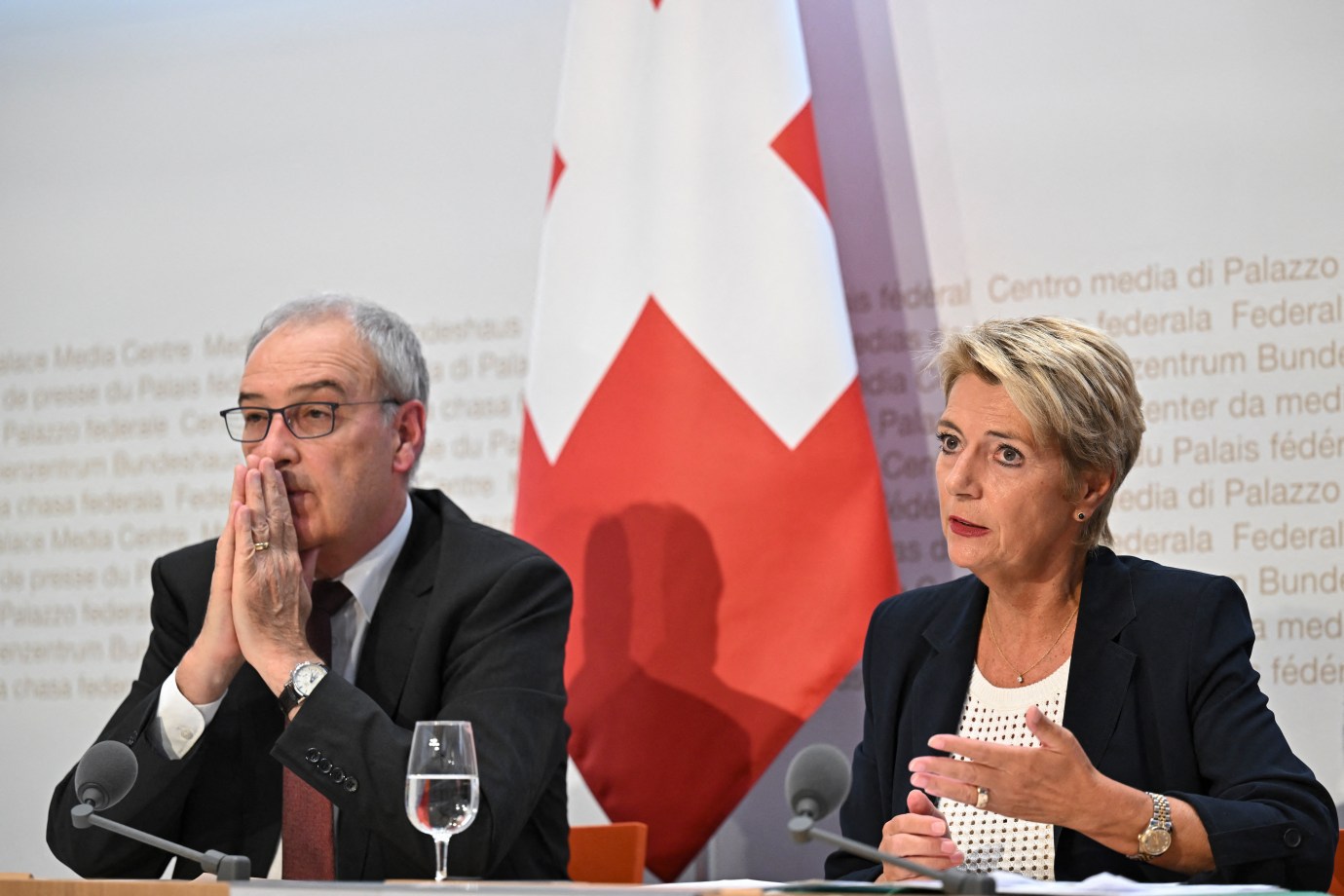
After delays, extended negotiations, and much drama, President Donald Trump’s slew of “retaliatory tariffs”—supposedly meant to erase or at least significantly ease U.S. trade deficits with dozens of countries around the world—went into full effect on August 7. Ranging from 10 percent to 41 percent, and based in part on hastily calculated equations, the new levies add high costs and immense unpredictability to the global economy—particularly as those rates can change at the drop of a Truth Social post.
Although much of the political and press attention has focused on larger economies, which have or are negotiating major trade deals with the Trump administration—namely, China, Canada, Mexico, Japan, and the EU—these levies are reshaping small, export-oriented economies worldwide, which face outsized costs and have less power to negotiate. Aside from sibilance, Switzerland and Sri Lanka don’t share much in common—but both face a radical shift in their economic outlook as they grapple with a reduced U.S. appetite for their products.
As a non-paying reader, you are receiving a truncated version of The Morning Dispatch. You can read our full item in the members-only version of TMD.
Switzerland, one of the wealthiest countries in the world, is currently facing tariffs of 39 percent on most of its exports, with the notable exception of pharmaceuticals, which are traditionally exempt from trade battles due to their importance to public health. Swiss pharmaceuticals account for more than 40 percent of total exports, and 5.4 percent of the country’s gross domestic product, with companies like Novartis and Roche enjoying a worldwide reputation.
But the sector remains imperiled as it faces an investigation by the Trump administration, which has deemed pharmaceutical imports a potential national security risk. The White House has stated that one of its policy goals is to “permanently bring our medical supply chains back home” and the administration is now investigating whether foreign pharmaceutical manufacturers—including those in Switzerland—pose a risk to national security under section 232 of the Trade Expansion Act. A report by federal investigators, set to be delivered this fall, could prompt the president to impose tariffs of up to 200 percent on cancer treatments, diagnostic tests, and heart medication, all manufactured in Switzerland.
Switzerland’s other high-value industries are facing severe headwinds as well. The market for luxury watches, potentially the country’s most iconic export (depending on one’s fondness for chocolate and cheese), faces uncertainty. Anticipating the 39 percent tariff cliff, watch companies engaged in a “mad scramble” to get inventory out of Switzerland and into the U.S., John Shmerler, the CEO of the 1916 Company, a U.S.-based watch seller, told TMD. “We had about $10 million of goods outside the United States that we brought back, that we paid a little over a million dollars in tariffs to bring back in,” he said.
Even so, the average high-income U.S. watch buyer may not be particularly dissuaded by a double-digit percentage increase in prices. “Wealthy customers are still celebrating milestones in their lives, and they’re buying nice things,” Shmerler said. “They’re a little bit more resilient to this stuff.”
The Swiss economy isn’t just watches, chocolates, and pills, however. Switzerland also boasts a large number of small- to medium-sized companies proficient in highly specialized manufacturing—insulin pumps, release valves for automobile airbags, and the engine for the Mars rover. Some of those companies will be forced to pass on costs to their customers, Rahul Saghal, the CEO of the Swiss-American Chamber of Commerce, to TMD. “The big sector that’s losing out is a Swiss manufacturing industry that does not have the flexibility of a multinational company,” he said.
Tariffs could also mean a complete loss of the U.S. market for these companies. Blumer AG, a maker of cutting, punching, and banding machines (used for items such as labels, cards, and tax stamps), has in recent months received no orders from U.S. customers. “If the tariffs remain this high, there will be no new machine orders from the U.S.,” Blumer AG CEO Roy Bruderer said in a recent interview.
On the other side of the world, Sri Lanka’s economy is also heavily based on exports. But unlike Switzerland, its main exports are neither high-tech products nor luxuries. Its three largest exports are apparel, tea, and rubber, with clothing alone making up 40 percent of the country’s exports. And a few major major markets are key for Sri Lankan goods.
Last year a quarter of the country’s exports went to the European Union (which grants preferential trade partner status to the island), but another quarter went to the U.S. And, in July, the entire sector faced possible disaster as initial U.S. “reciprocal” tariffs were set at 44 percent.
Frantic diplomatic efforts from Sri Lanka ensued. After agreeing to a host of concessions, including cutting tariffs on the majority of U.S. exports to Sri Lanka and agreeing to purchase hundreds of millions of dollars’ worth of U.S. oil, the Trump administration reduced the tariff rate on Sri Lankan imports to 20 percent. That actually put Sri Lankan textile manufacturers in line with other major exporters: Bangladesh, Indonesia, and Vietnam are all subject to 20 percent levies, and Thailand and the Philippines’ tariff rates are set at 19 percent.
In fact, Sri Lankan exporters now also enjoy a major comparative advantage over those located in regional behemoth India, currently locked in a trade standoff with the U.S. and enduring a 50 percent tax on exports to the U.S. So it’s unlikely that Sri Lankan production would shift to another neighboring country, which is what manufacturers in Switzerland are now considering.
But a 20 percent rate still represents a significant increase from the previous average tariff level of around 4 percent. “Even with that, there’s a lot to absorb for these economies,” Farwa Aamer, the South Asia director at the Asia Society, told TMD. “These external shocks are hard to absorb,” she said, noting Sri Lanka’s reliance on securing international financing as it attempts to recover from a devastating 2022 recession and its relative lack of economic diversification.
Sri Lanka and Switzerland will both be engaged in the same task over the next few weeks: frantically trying to negotiate lower tariff levels. Swiss diplomats, who had previously been publicly optimistic about securing a favorable trade deal, are now tight-lipped about the progress of negotiations as they aim to finalize a new deal by the end of October. “I can simply tell you that the Federal Council remains fully committed to improving the tariff situation,” government spokesperson Nicole Lamon said Wednesday, declining to give further details.
In the meantime, the Federal Council, the cabinet that governs Switzerland, is working on crafting concessions that might induce the White House to lower tariffs. These concessions could include increasing defense spending, importing more planes and liquefied natural gas, and purchasing U.S. arms. Swiss officials have also stated the country will reduce regulatory burdens on Swiss companies. But they need to move quickly. In mid-August, estimates from the Swiss government showed that the country’s economy grew at only 0.1 percent, down from 0.8 percent the previous quarter, and engineering trade group Swissmem says that 30 percent of manufacturing companies are considering shifting production out of the country to other locations in the European Union, which faces an average 15 percent tariff rate. “We are currently in a dangerous downward spiral,” Swissmem CEO Stefan Brupbacher said on Tuesday.
Meanwhile, Sri Lankan negotiators—mindful that the country’s main export competitors face the same tariff rates—are still seeking to drive down the 20 percent rate. The country still remains on an upward trajectory from its severe financial crisis in 2022, with the central bank in recent weeks projecting a growth rate of 4.5 percent next year. It cautioned, however, that “external demand conditions” (i.e., U.S. tariffs) could potentially harm its ongoing economic recovery. And business leaders are trying to ensure against unreliable U.S. trade. “Sri Lanka needs to widen our trade beyond our traditional markets,” Yohan Lawrence, the chairman of the Exporters Association of Sri Lanka, said at a recent conference.
But as soon as either country reaches a new deal, the U.S. may decide to make another big move. On Tuesday, Trump wrote on social media that “With this TRUTH, I put all Countries with Digital Taxes, Legislation, Rules, or Regulations, on notice,” threatening further tariffs. If the White House ever decides that Sri Lanka or Switzerland falls afoul of that diktat, or any other ultimatum made by Trump, they may find themselves scrambling even more.
Today’s Must-Read

The Sports Gambling Backlash Is Here
Toeing the Company Line

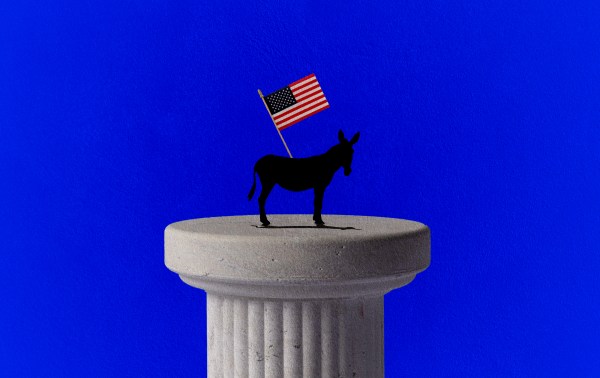
The Emerging Liberal Minority
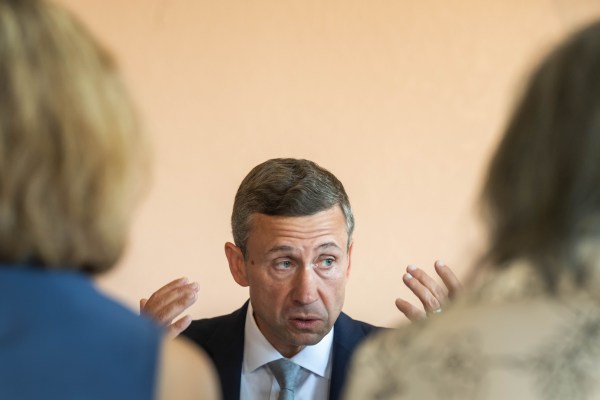
DNC Meeting Highlights Party’s Divide Over Israel

Norms for Thee, Unrestrained Power for Me

What’s Going On Across the Pond? | Interview: Daniel Hannan
Worth Your Time
- Gay charities and advocacy groups generally view the current Trump administration as one of the most harmful administrations to the interests of gay people. But it’s also almost certainly the gayest administration in history. Shawn McCreesh writes about these “A-Gays of Washington” for the New York Times, explaining how gay administration officials fit into the broader Washington gay landscape. “In 2019, Mr. Moran took over Log Cabin Republicans, the gay Republican group, aligning it fully with the MAGA movement and increasing its ranks. He stepped down in January after nearly five years hoping he would be rewarded with a job in the incoming administration. Though he didn’t expect it would involve nukes. Although he is now very busy learning the inner workings of the National Nuclear Security Administration, he said he felt a certain responsibility to continue looking after the ‘community’ of gay MAGA Republicans he spent nearly a decade cultivating. He keeps a spreadsheet with dozens of names and titles of other gay compatriots working inside the administration. ‘I love it when I find out there’s somebody new,’ he said. Part of the A-Gays’ power comes from the fact that they (mostly) stick together. ‘Even within the bureaucracy, the bureaucracy is overwhelming,’ Mr. Moran said. ‘I love having this community as a resource. Back in the day, these groups had to be closed off and hidden, but now we use it as a tool.’”
Presented Without Comment
Reuters: Trump Administration Mulls Taking Stakes in Defense Firms Including Lockheed Martin
Also Presented Without Comment
CNN: FEMA Workers Put on Leave After Signing Letter Warning of Trump’s Overhaul of the Agency
Also Also Presented Without Comment
South China Morning Post: South Korea Deploys Hologram Police Officer to Fight Crime – and It’s Working
Let Us Know
Have any thoughts or questions about today’s newsletter? Drop us a note in the comments!





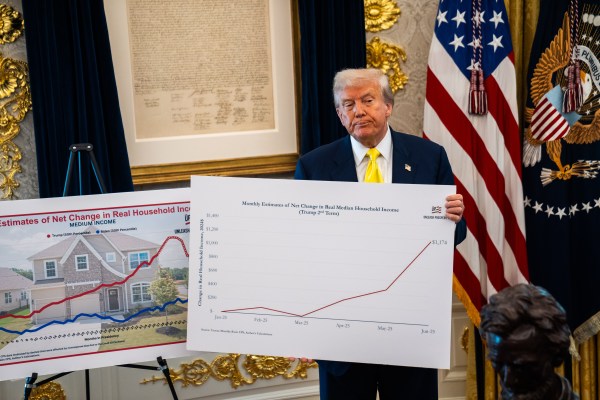
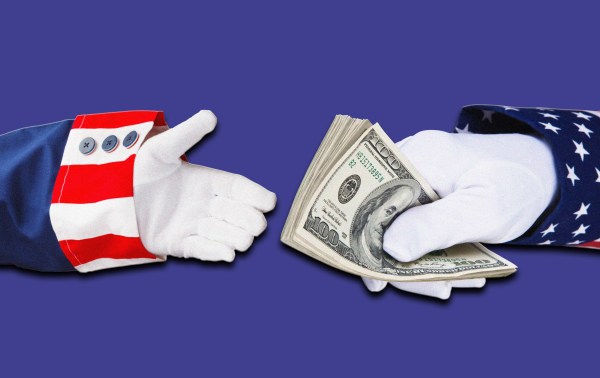
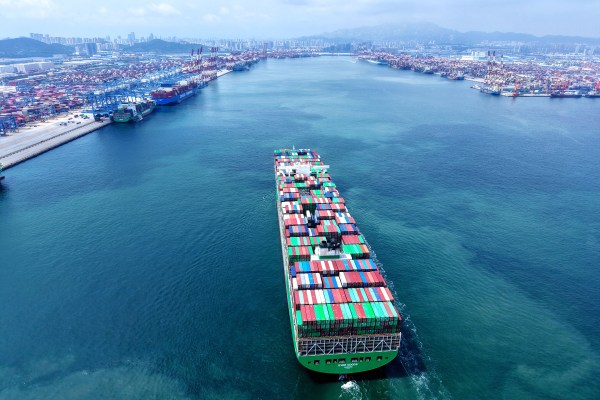

Please note that we at The Dispatch hold ourselves, our work, and our commenters to a higher standard than other places on the internet. We welcome comments that foster genuine debate or discussion—including comments critical of us or our work—but responses that include ad hominem attacks on fellow Dispatch members or are intended to stoke fear and anger may be moderated.
With your membership, you only have the ability to comment on The Morning Dispatch articles. Consider upgrading to join the conversation everywhere.